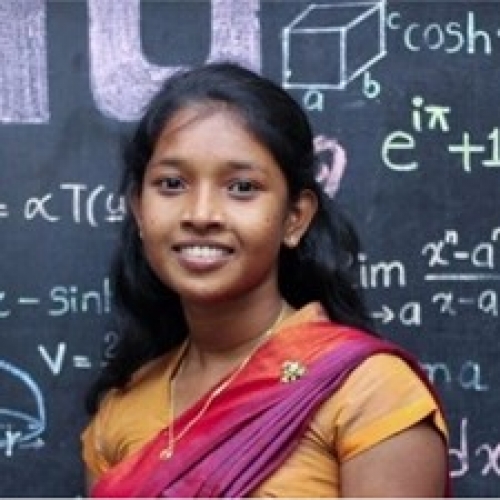
Chathurika Srimali Gunasekara
Curtin University
I am currently a second-year PhD student in Mathematics and Statistics at Curtin University, specializing in the field of Optimisation. I completed BSc Honours degree in Mathematics at the University of Peradeniya in Sri Lanka. My research is conducted in collaboration with the ARC Training Centre for Transforming Maintenance through Data Science, where I engage in innovative projects that merge theoretical and practical aspects of mathematics and statistics. I am particularly interested in modeling and solving complex problems to contribute to the advancement of knowledge in my field.
1. Give me a quick overview of the type of mathematics you are studying, and/or the aims of your research and its potential applications/outcomes (how you would explain your work and studies to friends who don’t study maths?)
My research focuses on optimisation, a branch of mathematics crucial for improving scheduling efficiency. Specifically, I’m studying how to improve shutdown scheduling in industries like mining. In these sectors, planning and scheduling when and how to shut down operations for maintenance is crucial but challenging due to uncertainties like equipment breakdowns or unexpected events. My goal is to develop mathematical models and tools that help companies make better decisions about maintenance schedules. These tools could save time, reduce costs, and improve overall efficiency, making operations smoother and more reliable.
2. How did you get into the mathematical sciences? Was there someone or something that inspired you to this field?
I developed a keen interest in mathematics during high school, largely thanks to my inspiring mathematics teacher. This fascination continued to grow, leading me to pursue my honours degree in mathematics. In my final year of undergrad studies, I completed real-world research projects focused on numerical analysis and mathematical modeling. This experience marked my first deep dive into mathematical research, and it profoundly inspired me to pursue further studies in the field. It was during this time that I realized the potential of mathematics to solve complex real-world problems, inspiring my passion for advancing in the mathematical sciences.
3. Winter School is designed to give students a deeper understanding of their area of research and expose them to others working in different fields/industries. Tell me about your Winter School experience. What was the most valuable part of the program for you?
I enjoyed the Winter School experience, especially the course on Decision-making under Uncertainty in Robotics, which resonated well with my background and will benefit my future research. I’m also eager to explore other courses, particularly those focused on Mimicking lectures to broaden my knowledge. Connecting with fellow students and delving into these specialized topics was a rewarding experience that has inspired new ideas and approaches for my academic journey.
4. What was your main take away/s from AMSI Winter School? Something you learnt? A connection you made? Do you have new ideas for your work/research or see it in a new light?
AMSI Winter School provided me with a valuable understanding of decision-making under uncertainty, where future outcomes are unpredictable and shaped by past and current actions. I learned how to apply this knowledge across diverse fields such as computer science, engineering, finance, healthcare, environmental studies, and public policy, beyond my own area of expertise. I improved my presentation skills by engaging the participant talks session. Additionally, I had the opportunity to connect with experts who expressed interest in offering guidance in the future. These insights and connections have sparked new perspectives and ideas for my future journey.
5. You received a grant to attend AMSI Winter School. How important was this in terms of your ability to attend, fully participate in the program and meet others studying in similar fields?
Receiving a grant for flights and accommodation to attend AMSI Winter School was crucial for my participation, especially since I travelled from Western Australia. It enabled me to fully engage in the courses, activities and presenting research in person, which was essential for connecting with peers and experts in my field. This support has been instrumental in fostering networking opportunities and collaborations that have greatly improved both my academic and professional growth.
6. What advice would you give to someone who is considering applying for Winter School? How would you describe the conference to them?
I recommend Winter School as a great opportunity for learning and networking. It offers a variety of courses across different fields connected to mathematics. Participants can enhance their knowledge and skills while connecting with experts and peers. I advise being prepared to actively engage in discussions and activities. It’s more than just learning; it’s about building connections and collaborations that can enrich your academic and professional journey.
7. Where do you want the mathematical sciences to take you? Where do you see yourself in five, ten years time?
In the field of mathematical sciences, my goal is to progress in research and develop solutions for real-world problems and publishing influence papers. Over the next five to ten years, I envision applying my skills in either academia or industry, and engaging in collaborative research that uses mathematics to introduce new ideas.
8. Any other feedback/comments you would like to provide on the travel grant or AMSI Winter School?
I would like to express my appreciation for the travel grant that enabled my participation in AMSI Winter School. I look forward to continued opportunities to engage with AMSI in the future.

